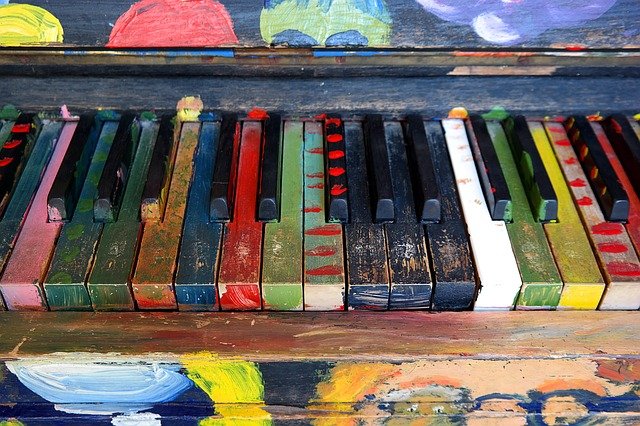If you’re not familiar with the ABC’s of a keyboard, it will appear to you as a mysterious box with numerous intimidating keys. No wonder most of us beginners always wonder how long does it take to learn piano.
To be honest, not many are aware that there’s no such definitive or predetermined period within which one can learn to play the piano properly. Art wouldn’t be so exciting to explore if it could be measured or calculated with such precision now, would it?
Nevertheless, some significant factors may determine how long it takes for you to learn the piano. For starters, if you’re even a little familiar with the nitty-gritty of a keyboard, it wouldn’t take a long time for you to get the hang of it.
However, you can’t be an inexperienced novice and expect to learn to play the piano like Mozart within a little time. That’s why we have enlisted some essential points to keep in mind before you practice the keys to introduce you to the basics.

How well do you want to play the piano?
Now, is piano hard to learn? Pretty much. Let’s be honest- if the piano were that easy to master, the world would never have come across the legacy of Franz Lizst, Maurice Ravel, and other musical geniuses.
For instance, let’s say that you’re a novice who wants to play their favorite song for a special occasion. That can be mastered in comparatively less time with precision, mainly because the learning here is minimal and doesn’t require any prior training at all.
However, if you’re dreaming of becoming a world-class pianist who can easily play classical piano tunes, let us warn you that it’s not an easy job. Here, we’re looking at years of concentrated practice under the guidance of a professional pianist.
Most of us want to be good enough to fit somewhere between the expertise of a beginner and a professional. However, you should realize that playing the piano, regardless of how good you want to be at it, would seem impossible to master if you lack utmost dedication and commitment towards it.
So if you’ve devoted yourself to becoming a professional pianist, you can transform yourself from an amateur to an expert within a comparatively short time. However, if you’re naturally inclined towards taking shortcuts and lose motivation quickly, it will probably not work out for you.
The different stages of learning a piano
As we’ve gone through the basics of playing the piano, let’s have a more in-depth look at the different levels of mastering this astounding instrument. Now, there are numerous underlying stages that come between being an inexperienced enthusiast and learning how to play piano with both hands like an expert.
Level 1- inexperienced enthusiast
Let’s assume that the birthday of someone special in your life is coming up, and you want to surprise them by playing a beautiful melody. Nevertheless, inside your head, you’re panicking and thinking, “I can’t play piano.”
This is the first stage of learning piano, where you begin with mastering easy-to-learn chords that do not consist of more than two octaves. In a nutshell, this stage mainly revolves around you learning how to move your fingers around the instrument a little better.
However, as you make noticeable progress, you will find yourself playing a song or two with ease. For instance, most of the entry-level pianists start by practicing songs such as “Wild horses,” “Linus and Lucy,” and similar easy-to-learn melodies. Mastering this stage may take somewhere around six months.

Level 2- experienced beginner
As you’re getting better at learning how to play piano with both hands, your lessons start to get a little more complex. As you master the first stage, you will most likely learn the basic chords such as IV, V7, and so on. Now, you have the chance to use this experience to play more complex melodies such as “The Imperial March.”
The ability to play scales up and down with both hands will probably be the most noticeable improvement you’ll observe as you graduate to level 2. As a bonus, you will learn to get better at stretching your fingers while playing the piano to perform more complex melodies.
This level will take a minimum of 2 years for you to master. After you learn this level, you’ll be able to play the famous pop songs that you hear on the radio every day. However, you have to be consistently devoted to graduate to higher learning.
Level 3- Intermediate learner
This is where the fun begins. As you keep getting better at playing faster melodies, you will notice that with time, you’ve started to incorporate more depth and dynamics to your piano performances.
However, it gets even better. At this point, you’ll be able to manage the chords with one hand while your other hand is playing something completely unrelated. You may as well be able to add your personal touch to the piece. However, finessing this level is quite a task, and may take you another two years.
After you master this level with precision, you won’t find it hard to play complex tunes such as Harry Potter’s “Hedwig’s Theme.” You will probably even be qualified enough to learn your first classical piece, for instance, “Vivace” by Gurlitt.

Level 4- Early phase of mastering
Now, this is the part where keeping a count of time becomes hard. From here, the time you take to play this instrument like a world-class pianist entirely depends on how passionate you are about learning the piano. However, let’s assume one more year of practice to be safe.
We’ve mentioned it because this is the part where most learners are satisfied with their expertise and decide to pause. Let’s be honest; if you’re good enough to deliver a legendary piece such as “Fur Elise” with ease, you’re pretty good overall.
By this time, you’ll be entirely out of your early “I can’t play piano” phase, and will find it easy to play timeless classics such as “Rocket Man” by Elton John. You’ll be a true master of 7-9 different chords and most likely begin to add a little jazzy flavor to your usual performances.
Level 5- intermediate phase of mastering
If you’ve been learning how to play the piano for five years or more, you’re just a step or two away from being a professional-level pianist. At this level, you’ll find yourself being very comfortable around the keyboard and will most likely be able to read the music.
When you reach this level, you will find it easier to illustrate your artistic expression in a more refined sense through your music. You’ll be trained enough to create your melodies with ease. You will also be familiar with the sound of every individual note, and get better at controlling it’s velocity more precisely.
Playing four-note chords will not be a hard job for you anymore, and we guarantee that your friends will be impressed when you play “Moonlight Sonata” to them. However, there are still volumes of the theory that you have to learn before you can call yourself a world-class pianist.

Level 6- A true master
After an average training period of 10 years, you’ll be skilled enough to call yourself a true master at playing the piano. You will gather the courage and confidence to play at gigs and establish a name for yourself in the music industry.
You will find it comparatively easy to read or write music like a true professional, and maybe even join a band or an orchestra. But most importantly, you’ll be skilled enough to have a definitive answer when someone asks you, “is piano hard to learn?”
Piano teacher – the unsung hero in this journey
If you’re wondering how long does it take to learn piano, you should figure out how well do you wish to be at it. Simply put, how much time you take to learn depends on how advanced you want to be at playing the piano.
But the major factor we usually overlook is the contribution of a good piano teacher. It’s quite hard to find a great teacher who takes your undying passion and carves you into a beautiful artist. So if you have found a good teacher, you’re already halfway there. Nevertheless, there are always alternatives, such as online tutorials on YouTube.

In a Nutshell
Although we agree that playing the piano isn’t a cakewalk, we can’t deny how advantageous it is in general. Science approves that learning to play the piano is a great stress-relief exercise. It also helps in boosting one’s self-esteem, help them enhance their concentration, and so on. So, it may be tough, but it’s certainly worth it.
That being said, we hope that you enjoyed our detailed breakdown of the estimated period of becoming an expert pianist. We’ll return soon with similar content to answer the questions that keep you wondering. Till then, stay curious!















